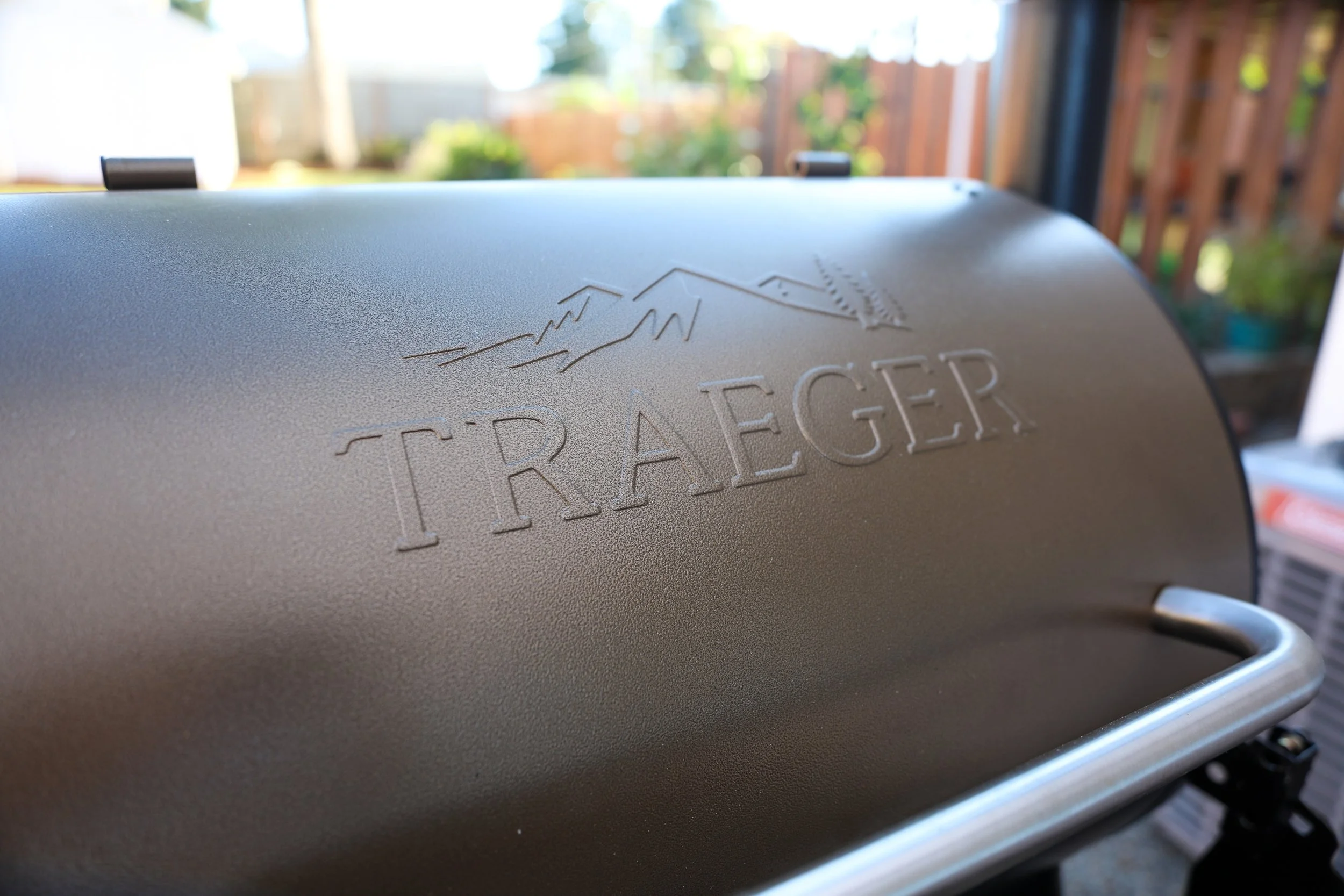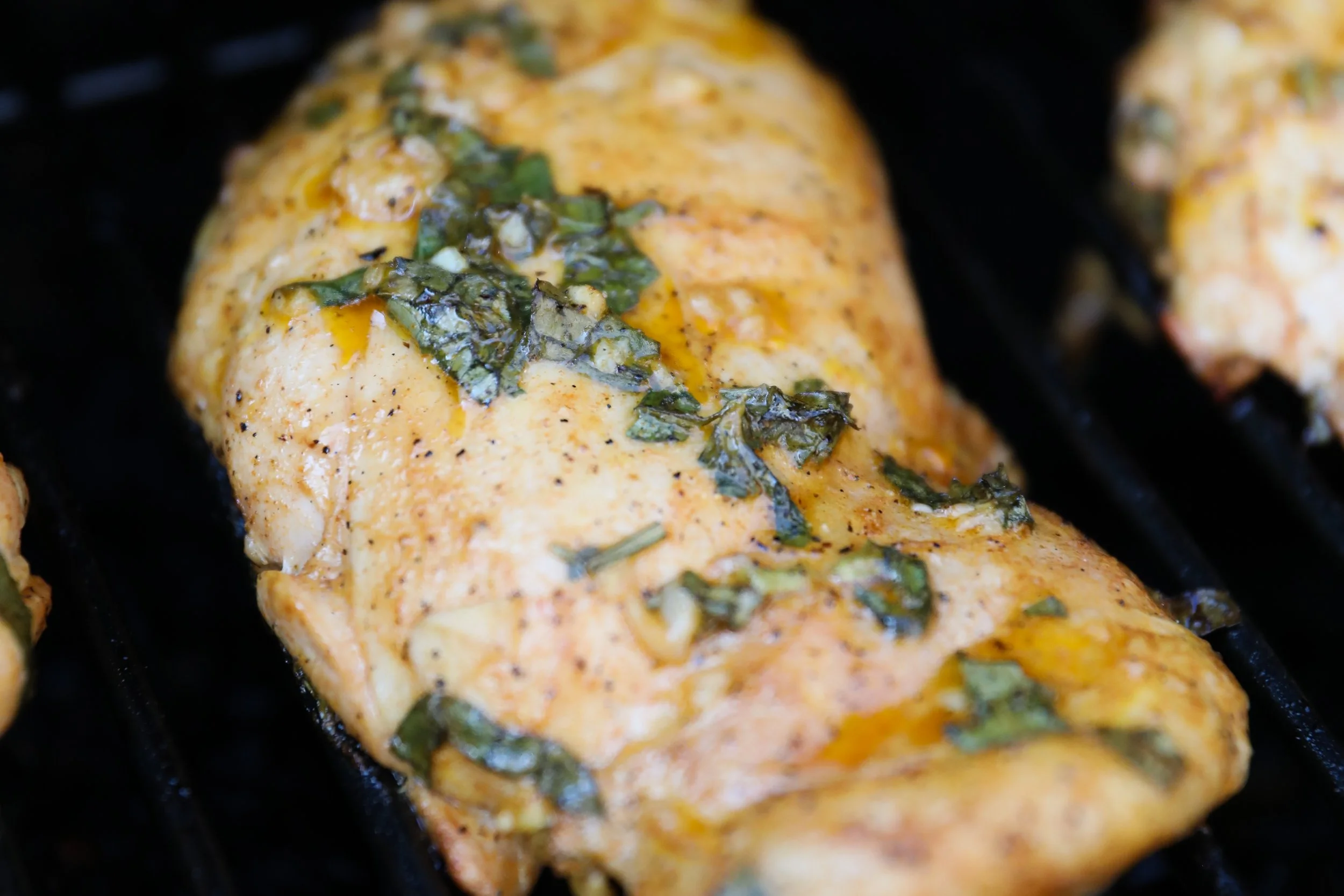Traeger Pro Series Review: Why This Pellet Grill Won My Garden-to-Table Summer
I wanted a grill I could cook on outside all summer—without babysitting charcoal or dealing with gas. The Traeger Pro Series hit that sweet spot: push-button start, steady temps, and real wood flavor. I assembled it on my lunch break (yes, really), and by dinner I was already cooking.
Shop the Traeger Pro Series 575 → Amazon
First Impressions & Setup
Assembly: Straightforward—I put it together mid-day and cooked that evening.
Size: For one of Traeger’s smaller models, it still has generous space. Ribs, chicken, and a sheet pan of veggies fit comfortably.
Learning curve: The biggest lesson was patience with low-and-slow cooks. Once you let the grill do its thing, it rewards you.
Real-World Cooking: Ribs, Chicken & Garden Veggies
Grilled Lemon-Basil Chicken Thighs
Consistent temperatures: This is where the Traeger shines. Set your temp and it holds it, which is the difference between “pretty good” and “wow.”
No flare-ups: Unlike gas or charcoal, I don’t battle sudden flames—great for delicate veggies and skin-on chicken.
Flavor: Clean, gentle smoke that complements food rather than bulldozing it.
Recent cooks I loved:
Grilled Lemon-Basil Chicken Thighs (Traeger-friendly weeknight easy): Pair with my Fresh Corn, Tomato & Basil Salad for peak summer.
Pellets I’m using: Mostly Traeger brand so far—reliable and easy to find. I’m eyeing the charcoal pelletsnext for a bolder profile.
Pellets (shop) → Amazon
What I Love (and What I Don’t)
Pros
Set-it-and-forget-it convenience with steady temps
Excellent flavor without flare-ups
Ample space for being a compact model
Versatile: low-and-slow, weeknight grilling, and veggie roasting
Cons
Pellet cost adds up (though comparable to good charcoal for how much cooking you get)
Patience required for true low-and-slow—this isn’t a “blast it hot and flip fast” grill
Cleaning & Upkeep (What Actually Matters)
Brush after cooks: A quick grate brush while warm keeps things tidy: Traeger Grill Brush
Bucket liners are a game changer and easy for clean up.
Empty the firepot & bucket periodically: A small shop vac makes ash cleanup painless.
Drip trays: Saves time on big cooks.
Traeger vs. Weber vs. Pit Boss vs. Gas: Which Is Right for You?
| If you want… | Best Bet | Why |
|---|---|---|
| Push-button ease + wood flavor | Traeger Pro 575 | Consistent temps, no flare-ups, great for meats & veg |
| Classic sear + budget charcoal | Weber (Charcoal) | Iconic flavor, lower fuel cost, more hands-on |
| Value pellet option | Pit Boss | Competitive pricing, solid entry into pellet grills |
| Fast weeknight burgers/steaks | Gas Grill | Instant heat, simple searing, less smoke flavor |
Tips for Better Results
Preheat fully: Give it time to stabilize before loading food.
Pick pellets for the food: Lighter woods for chicken/veg; stronger blends or “charcoal style” for ribs & beef.
Let it rest: Especially with ribs and larger cuts—juicier results.
Use zones: Keep veggies on an upper rack or away from direct heat paths for perfect texture.
Who the Traeger Is For
Weeknight cooks who want reliable heat and real smoke flavor
Gardeners who grill lots of veggies (no flare-ups = fewer burnt edges)
Home cooks who prefer consistency over fiddling with vents and chimneys
If you love hands-on fire management or you want ultra-hot steakhouse sears every night, you may prefer charcoal or a dedicated sear station on gas. For everything else, the Traeger is a joy.
The Bottom Line
The Traeger Pro Series delivers exactly what I hoped for: easy, flavorful, consistent outdoor cooking. From ribs to basil-lemon chicken to sheet-pan garden veggies, it’s turned summer dinners into a no-stress routine—with better results than I was getting indoors.
Traeger Pro Series 575 → Shop on Amazon
Traeger Pellets → Shop on Amazon
Weber → Shop on Amazon
Pit Boss → Shop on Amazon
Traeger Grill Brush → Shop on Amazon
Traeger Pro 780 (more capacity) → Shop on Amazon
FAQ
Does it work well for quick dinners?
Yes—preheat while you prep, then cook chicken thighs, sausages, or veggie skewers fast and even.
How long do pellets last?
It varies by temperature and weather. Expect higher burn rates at hotter temps or on windy/cold days. I find it broadly comparable to running quality charcoal, cost-wise.
Can I get a good sear?
Pellet grills excel at steady heat and smoke. For hard sears, use a cast-iron skillet or griddle on the grates once preheated.


